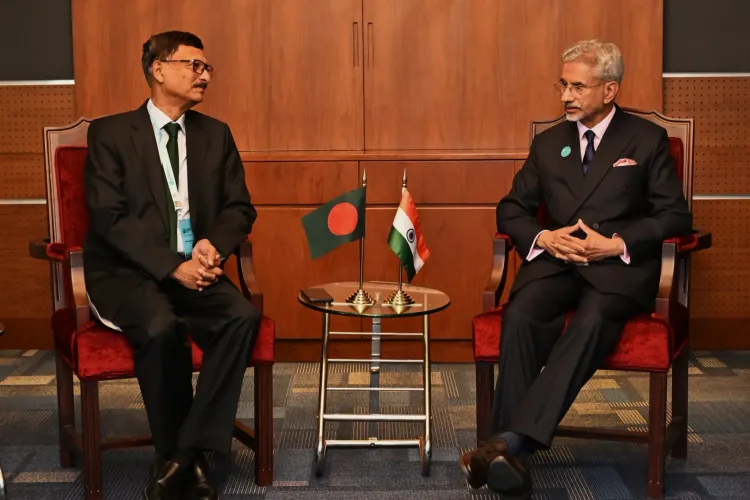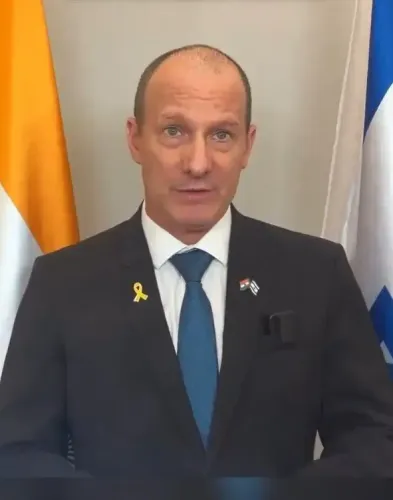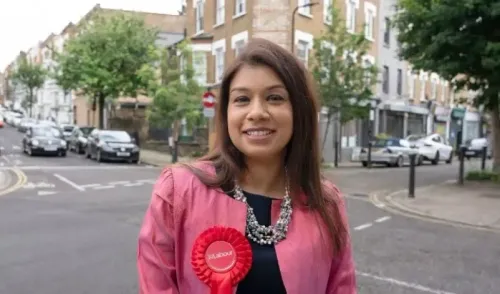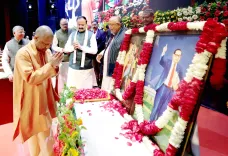Bangladesh Aims for Closer Relations with India, Anticipates Visa Resumption

Synopsis
Key Takeaways
- Bangladesh is eager to enhance relations with India.
- Visa issuance to Bangladeshis by the Indian High Commission is expected to resume soon.
- Chief Advisor Muhammad Yunus prioritises maintaining good relations with India.
- Both nations acknowledged the need to work through current challenges.
- Upcoming BIMSTEC Summit in Bangkok presents an opportunity for dialogue.
Dhaka, March 5 (NationPress) Bangladesh has shown its willingness to forge stronger ties with India, especially after the strained relations that followed the removal of former Prime Minister Sheikh Hasina and the violence against Hindu minorities in the region.
According to local media reports, Touhid Hossain, the Foreign Affairs Advisor under the interim government led by Muhammad Yunus, stated that Bangladesh is eager to enhance its relationship with India and has consistently communicated this intention.
Hossain expressed optimism that the Indian High Commission will soon resume issuing visas to Bangladeshi citizens.
Echoing the sentiments of Chief Advisor Muhammad Yunus, he remarked that maintaining amicable relations with India is essential. Hossain stated, "The position articulated by the Chief Advisor reflects our stance. I have previously emphasised the necessity of a constructive working relationship based on mutual respect. The rest will unfold in due course. Both sides have their respective interests, and the relationship will evolve accordingly."
When asked about any updates on the resumption of visa services by the Indian High Commission and the normalisation of relations with India, he replied, "Such information should come from India. We have not created visa-related complexities. Visa issuance is a sovereign prerogative. If a country decides not to grant visas to certain individuals or groups, it is within their right, and no objections can be raised. We hope they will communicate their decision to us and take measures to facilitate the process for prospective travellers."
Last month, Hossain had a discussion with India's External Affairs Minister (EAM) S. Jaishankar on the sidelines of the Indian Ocean Conference in Muscat. During this meeting, both nations acknowledged the challenges facing their bilateral relations and emphasized the importance of working together to address these issues.
India's Ministry of External Affairs (MEA) noted that EAM Jaishankar stressed the importance of Bangladesh not normalising terrorism.
Following their less than thirty-minute meeting, the Bangladeshi media reported that both Hossain and Jaishankar underscored the need to tackle the challenges in their current bilateral relations and discussed the potential of arranging a meeting between Yunus and Indian Prime Minister Narendra Modi during the upcoming BIMSTEC Summit in Bangkok later this year.
India had ceased issuing visas to Bangladeshis following widespread protests marked by violence and riots in the country last year.
Despite India's ongoing efforts to normalise relations with Bangladesh, the Dhaka government has faced significant backlash for making unfounded allegations against India and targeting minorities, particularly the Hindu community, since the student uprising and the dramatic fall of Hasina's Awami League government last year.
The 6th Bay of Bengal Initiative for Multi-Sectoral Technical and Economic Cooperation (BIMSTEC) Summit is set to take place in Bangkok, Thailand, from April 2-4 this year.
Bangladesh, which will assume the role of the next chair of BIMSTEC at this summit, is hopeful for a meeting between Yunus and Prime Minister Narendra Modi during the Bangkok event.









